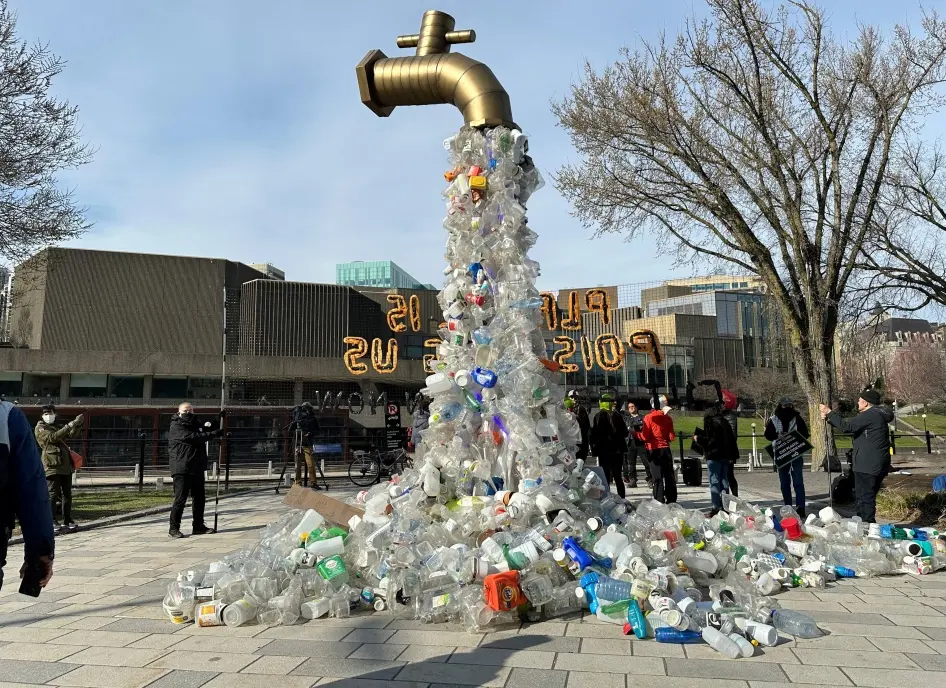“We must all return to the basics: reduce, reuse, recycle, making any number of choices every day that collectively make a difference.” [Prof Richard Thompson, Plymouth University]
.
Back in 2028, the VGS and the Sidmouth Plastic Warriors put together the Plastics Week in Sidmouth and the Plymouth University talk on “The human dimension: How social and behavioural research can help address marine litter”.
The session focussed on plastic pollution in the oceans – and the work of Prof Richard Thompson @ Plymouth University whose team came to Sidmouth.
This week, the latest Observer considers the treaty that could end the plastic deluge – and how Prof Thompson started his journey into microplastics over two decades ago:
This coming week, world leaders could finally decide what those changes might look like. Delegates from 180 countries will meet in Geneva for the final negotiation of a UN treaty to limit plastic pollution. The treaty has the potential not only to reshape industry, health and the environment but our everyday life. Thompson, whose work has been integral to the discussions, will be watching closely...
And Prof Thompson suggests the way ahead:
While policymakers hammer out the details, the rest of us are far from powerless, he says. We must all return to the basics: reduce, reuse, recycle.
“That’s still absolutely relevant,” he says, recommending using a refillable cup, avoiding single-use carrier bags, and making any number of choices every day that collectively make a difference. “It might seem like a small individual action, but it absolutely does all add up.”
Thompson encourages everyone to apply the essentiality test regularly in life. Parts of your car may be plastic, which are lightweight, helping reduce fuel usage. So you might consider that essential, he says. But is that yoghurt pot that you can’t recycle essential? What about that multi-layered crisp packet in your cupboard? Do we really need crisps to have such a long shelf life, he asks. Or could we have a slightly less durable packet that allows our crisps to be safe to eat for just a few weeks? Small acts of resilience – choosing not to buy a certain packet of crisps – from a large community sends a clear message.
Ultimately, whether we’re talking about an ambitious cap on global production or making different choices in the supermarket, it’s not about trying to create a world without plastic, says Thompson. Instead, “It’s about using plastic more responsibly than we ever have before.”
‘Reduce, reuse, recycle’ also means turning off the tape of ‘less essential plastics’:

At this end of the week, however, there is a lot of concern coming out that “big plastic polluters are at the Global Plastics Treaty” [from Surfers Against Sewage], that the plastic treaty talks are “overrun by fossil fuel lobbyists”, campaigners say [from The Independent today] and that oil states, who are against production cuts, have deadlocked a plastic treaty [Climate Change News a short time ago].
We shall have to see what happens in Geneva over the weekend – but meanwhile, as Prof Thompson suggests, as individuals, families and communities, we can make an impact with our own choices – and the likes of the Sidmouth Plastic Warriors are definitely making an impact!
…